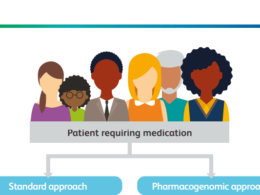What is the message?
Personalized cancer vaccines, which target the unique mutations of individual tumors, are poised to revolutionize cancer treatment.
Thanks to advancements in genomic sequencing and innovative research, these vaccines could soon become a standard option for patients, as highlighted by Catherine J. Wu, a Harvard Medical School professor and recent Sjöberg Prize laureate.

This summary is based on the article “When will patients see personalized cancer vaccines?” published by The Harvard Gazette and written by Alvin Powell on April 10, 2024.
EXECUTIVE SUMMARY
What are the key points?
Concept and Mechanism:
Cancer vaccines aim to generate a targeted immune response against tumor-specific antigens, known as neoantigens.
Unlike traditional vaccines, these therapeutic vaccines treat existing cancers by stimulating the body’s T cells to attack cancer cells.
Technological Advancements:
The advent of next-generation sequencing has enabled the identification of neoantigens unique to each cancer, paving the way for personalized vaccine development.
Personalized vaccines can be designed by analyzing a patient’s cancer genome and creating peptides that trigger an immune response specifically against their tumor.
Clinical Success and Trials:
Initial studies, including a 2017 trial on melanoma patients, have shown promising results, with some patients experiencing long-term remission.
Ongoing trials at Dana-Farber Cancer Institute and industry-sponsored studies worldwide are exploring the efficacy of these vaccines across various cancer types.
Integration with Other Therapies:
Personalized cancer vaccines have shown strong synergy with immune checkpoint blockade therapies, enhancing overall treatment effectiveness.
Combining vaccines with other immunotherapies can provide a comprehensive attack against cancer’s heterogeneity.
Future Prospects:
Researchers are optimistic that personalized cancer vaccines will be available in clinics within a few years.
Collaboration between academic institutions and industry is crucial for scaling production and streamlining the development process.
What are the key examples?
Melanoma Study: A 2017 trial reported that all six melanoma patients treated with personalized vaccines were still alive three to four years later. Two patients with advanced cancer experienced complete tumor regression when combined with immune checkpoint blockade.
Diverse Cancer Trials: Current trials at Dana-Farber are testing vaccines on patients with glioblastoma, kidney cancer, ovarian cancer, melanoma, and chronic lymphocytic leukemia.
What are the key statistics?
The Sjöberg Prize awarded to Catherine J. Wu is a $1 million honor recognizing groundbreaking cancer research.
Dana-Farber’s academic trials involve small Phase 1 studies with 10 to 30 patients, focusing on detailed immunological analysis.
Industry-sponsored trials are expanding, aiming to provide population-level data on the effectiveness of personalized cancer vaccines within two to three years.
Conclusion
Personalized cancer vaccines represent a significant advancement in the fight against cancer, offering tailored treatment based on individual tumor profiles.
With ongoing research and industry collaboration, these innovative vaccines are expected to become a viable clinical option soon, providing new hope for cancer patients worldwide.
The combination of personalized vaccines with existing immunotherapies holds the potential for more effective and enduring cancer treatments.
To read the original publication, click here.











